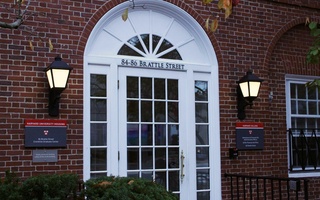{shortcode-f0a4b8a50819898eaa17b9dc590fa5d6bd8ee56e}
A pending lawsuit alleging Harvard’s admissions policies discriminate against Asian Americans may go to trial as early as July, according to a Friday case filing.
The lawsuit, filed by the advocacy group Students for Fair Admissions in 2014, is currently in the late stages of its discovery phase, with discovery and depositions scheduled for completion on May 1, 2018. The lawsuit alleges Harvard discriminates against Asian Americans in its admissions process.
The new case filing suggests the trial date may begin in July or August, following the discovery period and subsequent court proceedings.
Though lawyers for SFFA wrote in the case filing they will request summary judgement—that is, a decision without a trial—they also wrote they believe this outcome is unlikely. The lawyers argue the expert reports do not appear to decisively favor either side.
“As the Court recognized at the February 7 hearing, this case is not likely to be resolved on summary judgment,” the case filing reads. “Four claims remain, and as to each, the parties have submitted expert reports that analyze identical data yet reach diametrically opposed conclusions.”
Edward Blum, president of SFFA, wrote in an emailed statement Saturday that the group “believes that the allegations we made about Harvard’s unconstitutional admissions policies will be evident to any impartial observer who reads our motion for summary judgement later this summer.”
If the United States District Court in Boston does not decide the case on summary judgement, the court will move to set a trial date. In the new filing, lawyers for SFFA wrote that they believe Harvard will request a trial date for the summer.
The organization itself, however, “requests that the Court maintain the existing schedule and either refrain from setting a trial date or set trial for at least two months after summary judgment briefing concludes.”
SFFA made an argument for a later trial date in the case filing, arguing they and their lawyers need more time for discovery and preparation “for a trial of this size and scope.” The organization’s lawyers wrote they believe a “full-blown” trial could take around four weeks to complete, though they requested a “narrowed” trial.
“The Court should not permit Harvard to leverage its resource advantage to SFFA’s detriment by rushing into trial on an expedited schedule,” the filing reads.
If the Court approves the plaintiffs’ request, the trial date may then be pushed further towards the end of 2018. Harvard, however, requested earlier in the case that the trial not be set for September through December because the admissions office is at its busiest during that time of year, reviewing thousands of applications.
The University argued it would unfairly burden admissions employees if they had to leave their work to give testimony during that time of year. If the Court approves both requests, the trial date may then be pushed back to 2019.
“If trial is not held this summer, it may be impossible to hold a trial in this case until the late spring or summer of 2019,” the case filing reads.
Harvard spokesperson Rachael Dane wrote in an emailed statement Sunday that many “highly academically qualified individuals” apply to the College.
“To deliver on our educational mission, our admissions practices consider the whole person, their capacity not only for academic excellence, but also their ability to contribute to and learn from people profoundly different from themselves,” Dane wrote.
—Staff writer Samuel W. Zwickel can be reached at samuel.zwickel@thecrimson.com.
—Staff writer Delano R. Franklin can be reached at delano.franklin@thecrimson.com.
Read more in News
Charles P. Slichter, Longtime Corporation Fellow, Dies at 94Recommended Articles
-
 Tentative Jan. 2019 Date Set for Admissions Lawsuit Trial
Tentative Jan. 2019 Date Set for Admissions Lawsuit Trial -
 Admissions Lawsuit Trial Date Set for Oct. 2018
Admissions Lawsuit Trial Date Set for Oct. 2018 -
 Harvard Rejects Allegations of Discrimination in New Court Filings
Harvard Rejects Allegations of Discrimination in New Court Filings -
 Harvard Makes Final Bid to Avoid Trial in Admissions Lawsuit
Harvard Makes Final Bid to Avoid Trial in Admissions Lawsuit -
 The Harvard Admissions Trial Starts Today. Here’s What You Need to Know.
The Harvard Admissions Trial Starts Today. Here’s What You Need to Know.













